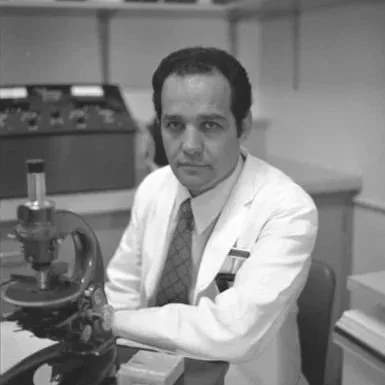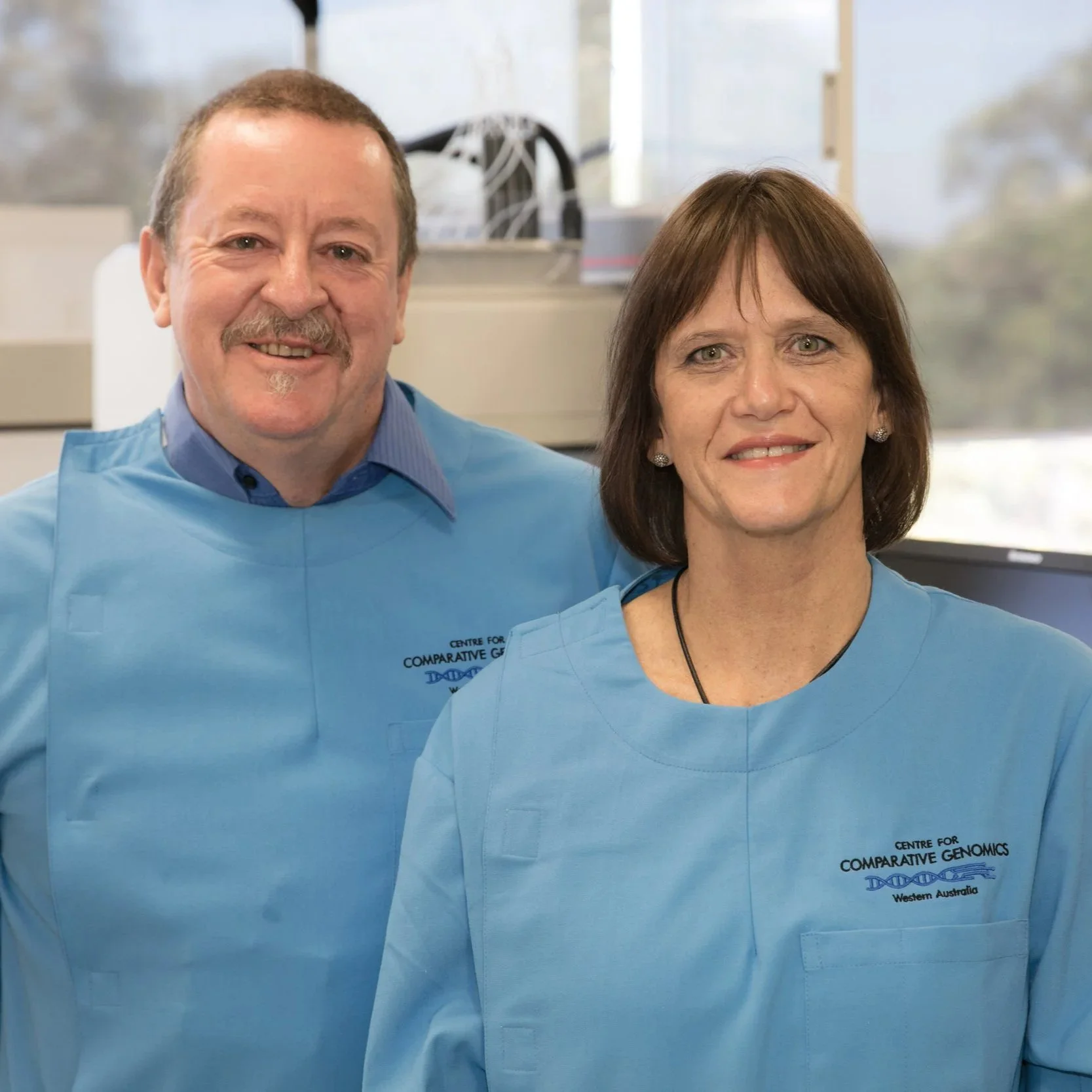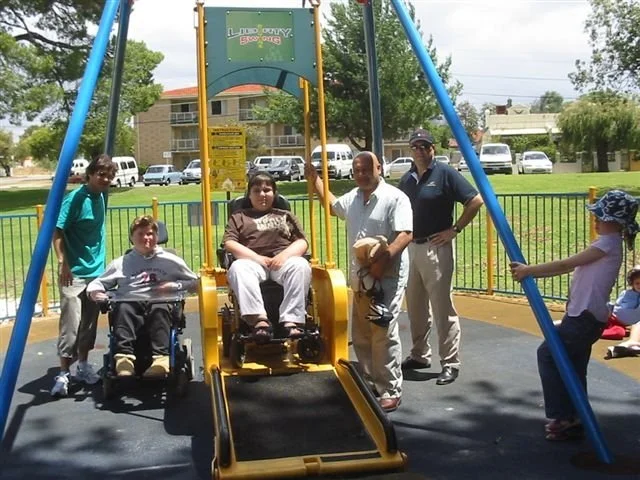IMPORTANT MOMENTS IN OUR HISTORY
1967
Founded as the Muscular Dystrophy Research Association of WA (MDRA) in April 1967, the organisation began at a time when so little was known about muscular dystrophy that prevention and cures were thought possible. The Association’s early goal was to support researchers to find and apply methods to prevent, control, or cure muscular dystrophy and related conditions. Professor Byron Kakulas, a pioneer in neuromuscular research, played a vital role in shaping these early efforts and putting Western Australia on the world stage for muscle research.
While we now know there are no cures, research continues to focus on improving treatments and quality of life. Over time, the Association expanded its vision, creating a strong network of support, providing information, and advocating for better medical and community resources for individuals and families.
1970’s - 1980’s
The 1970s were a decade of growth and recognition for MDRA. Professor Byron Kakulas began his regular visits to the Lucy Creeth Home, offering specialist support for children and families. MDRA became a major Telethon beneficiary, raising $50,000 and launched its first Annual Charity Auction in partnership with the Kailis family. The Association expanded rapidly, with new branches across WA, and its first staff member was appointed. Perth also hosted the 2nd International Congress on Neuromuscular Disorders in 1971, placing WA at the forefront of global muscle research. By mid-decade, MDRA had created the Neuromuscular Foundation to broaden its research scope and in 1979 Professor Byron Kakulas received international recognition for his groundbreaking work.
1990’s
The 1990s were marked by groundbreaking research and evolving community support. Key milestones included the publication of Pathogenesis and Therapy of Duchenne and Becker Muscular Dystrophy in 1990, advancing global research efforts. Gene therapy research progressed through collaborations between Steve Wilton, Sue Fletcher and other researchers, focusing on antisense oligonucleotide (AO) therapies. In 1996, the Association officially became the Muscular Dystrophy Association of WA (MDWA). Alongside research, clinical studies expanded into inflammatory myopathies and family support services grew, offering counselling, home visits and resources to help patients and families navigate life with neuromuscular conditions.
2000’s
The beginning of the 2000s, we launched our Community Support Programs alongside major fundraising events. These programs were created to connect young people and families living with neuromuscular conditions, giving them the opportunity to take part in activities that were often otherwise inaccessible. During this time, there was also a strong focus on large-scale fundraising events, which began to provide sustainable income for both services and research. Meanwhile, Professors Wilton and Fletcher made significant progress in developing the antisense oligonucleotide (AO) treatment, designed to bypass the genetic defect in Duchenne muscular dystrophy. Their groundbreaking work quickly gained global attention.
2010 - 2014
During the 2010s, MDWA strengthened both research and community support. The organisation launched national registries for Duchenne muscular dystrophy (DMD) and rare diseases, expanded clinical trials for DMD and SMA and introduced the Big Red Walk. Leadership was reinforced with the appointment of a new CEO, while initiatives like TEAM Spencer, the Duke of Edinburgh Award and expanded Cough Assist access enhanced support and engagement for families across WA.
2015
Muscular Dystrophy WA expanded its services and community programs. A new Toyota Rav4 was acquired to support events and outreach, and the Cough-Assist Program grew to 61 machines, one of the largest in the southern hemisphere. The organisation held MD2015, a symposium with leading experts, and awarded research grants exploring potential DMD treatments. Social support initiatives expanded, including the first Young Adults Social Group and male carer events. MDWA also assisted community readiness for the NDIS and My Way trials. The annual Ride for Someone Who Can’t saw a record 68 riders participating in the Dwellingup 100.
2019
The year marked several significant achievements for MDWA. Exon 53, a genetic target in Duchenne muscular dystrophy treatment aimed to restore functional dystrophin, received FDA approval, while our state-wide conference, opened by Professor Byron Kakulas, featured international guest speaker James Poysky and the Honourable Monique Ryan. We undertook our first co-design process with neuromuscular community members and launched the Ignite program through the Duke of Edinburgh Award. Community engagement surged, with a record number of events and participation increasing by over 95%. The Truffles for Muscles auction was relocated to Clarke’s of North Beach, generating over $100k. MDWA also assumed full management of the Dwellingup100 Mountain Bike event, welcoming more than 1,000 participants while continuing to fundraise.
2020
The COVID-19 pandemic required MDWA to quickly adapt, delivering support services online during the March–May lockdown and continuing virtual support at WA Health’s request until early July. The first regional Coffee Morning was held and MDWA played a major role in developing the national website The Loop, from grant writing and community consultation to content management and promotion. Staff transitioned to a work-from-home model and many events were cancelled due to restrictions. Midway through the year, a new strategic planning process using the Gazelle methodology was adopted, setting quarterly targets and providing a strong framework for monitoring performance. Following community feedback, MDWA also undertook the significant task of registering for the NDIS. MDWA also welcomed support from the Wearne Charitable Trust, its first Private Ancillary Fund contributor, funding a community program.
2021
June 2021 saw the TGA approval of Risdiplam, the first gene therapy for SMA, alongside FDA approval of Exon 45. MDWA successfully passed its NDIS registration audit with no non-conformities, despite community events being impacted by short-term lockdowns and reduced attendance confidence. The January School Holiday program evolved into a Fun Day, and the Transition Program was launched to support younger children moving into school-aged services. Rick and Ruth Steven were awarded Honorary Life Membership for their ongoing contributions through TEAM Spencer. MDWA undertook significant national lobbying, through MDFA, advocating for adult access to Risdiplam and Spinraza, newborn SMA screening, and equitable NDIS access for Australians over 65. A new fundraising event, Tall Tails was introduced, combining tax-time giving with a cocktail-style gathering.
2023
Neuromuscular WA officially rebranded to reflect and include all neuromuscular conditions, following extensive consultation with community members and stakeholders. Alongside the rebrand, the organisation launched the Bereavement Program, implemented the System Navigation pilot (thanks to significant funding from the Department of Health) and hosted the inaugural Impact Art Event, raising funds for community programs and leadership was strengthened with Board and staffing updates. Sadly, our founder Professor Byron Kakulas passed away.
2024
The System Navigation program was extended for a further three years to begin expansion into regional WA and other rare disease cohorts. The team was reorganised into Individualised Services and Events & Programs following the Community Services review. Neuromuscular WA hosted the 18th International Congress on Neuromuscular Disease (ICNMD) and a dedicated Patient Day. Funding highlights included over $400,000 in donations, a Perron Foundation grant for program evaluation and becoming the charity of choice for North Perth Bowls Club Charity Month for two years.











